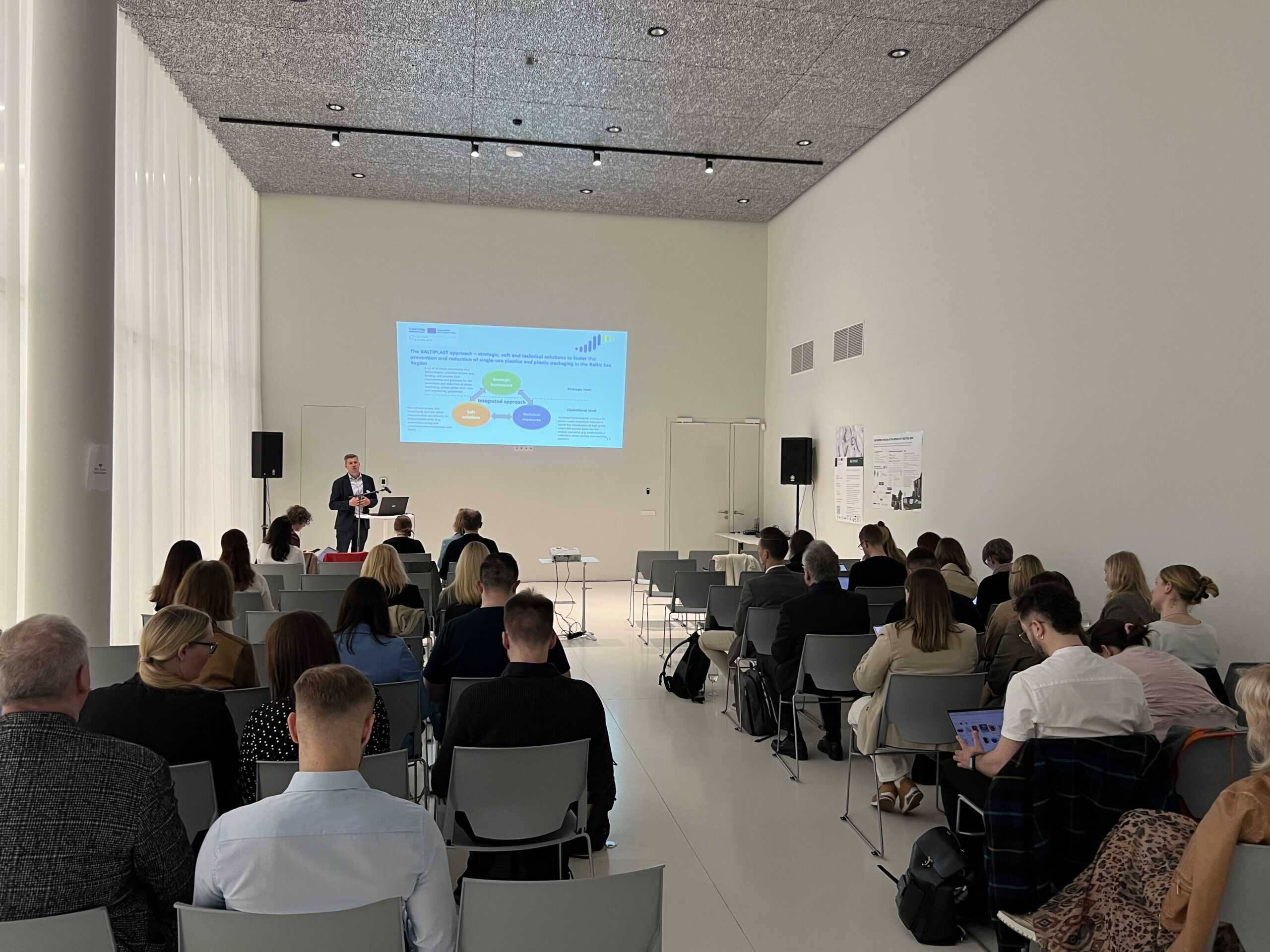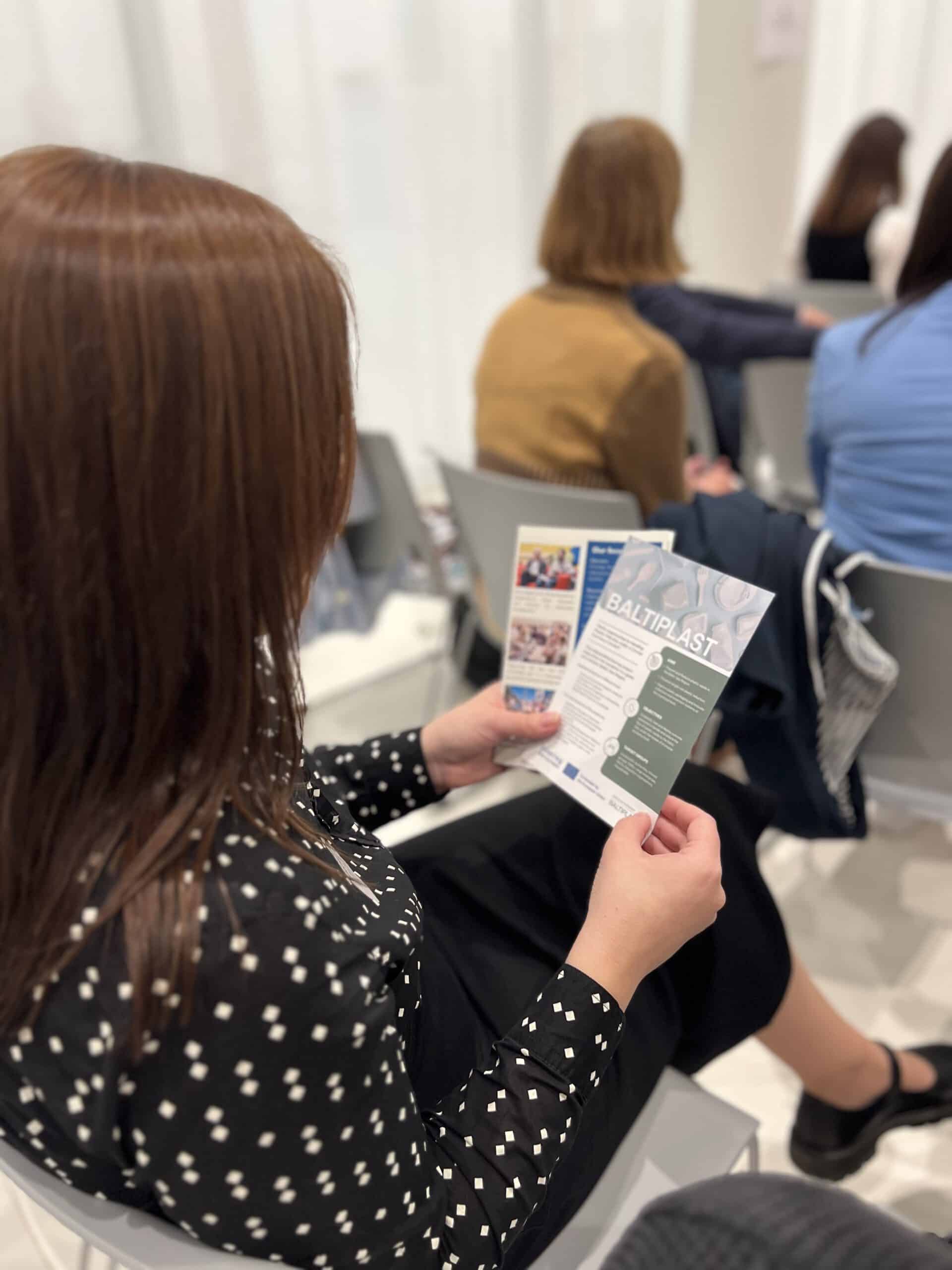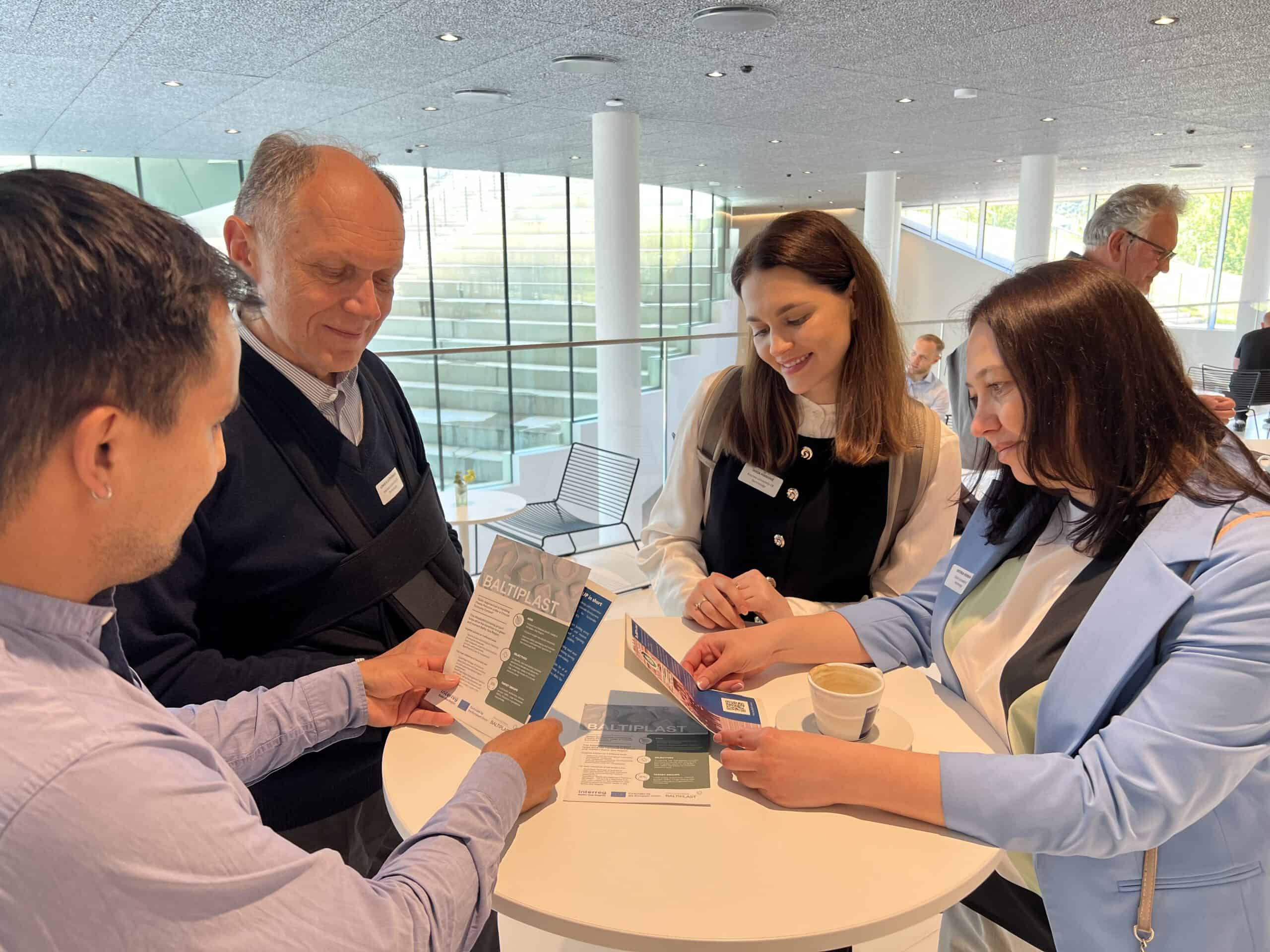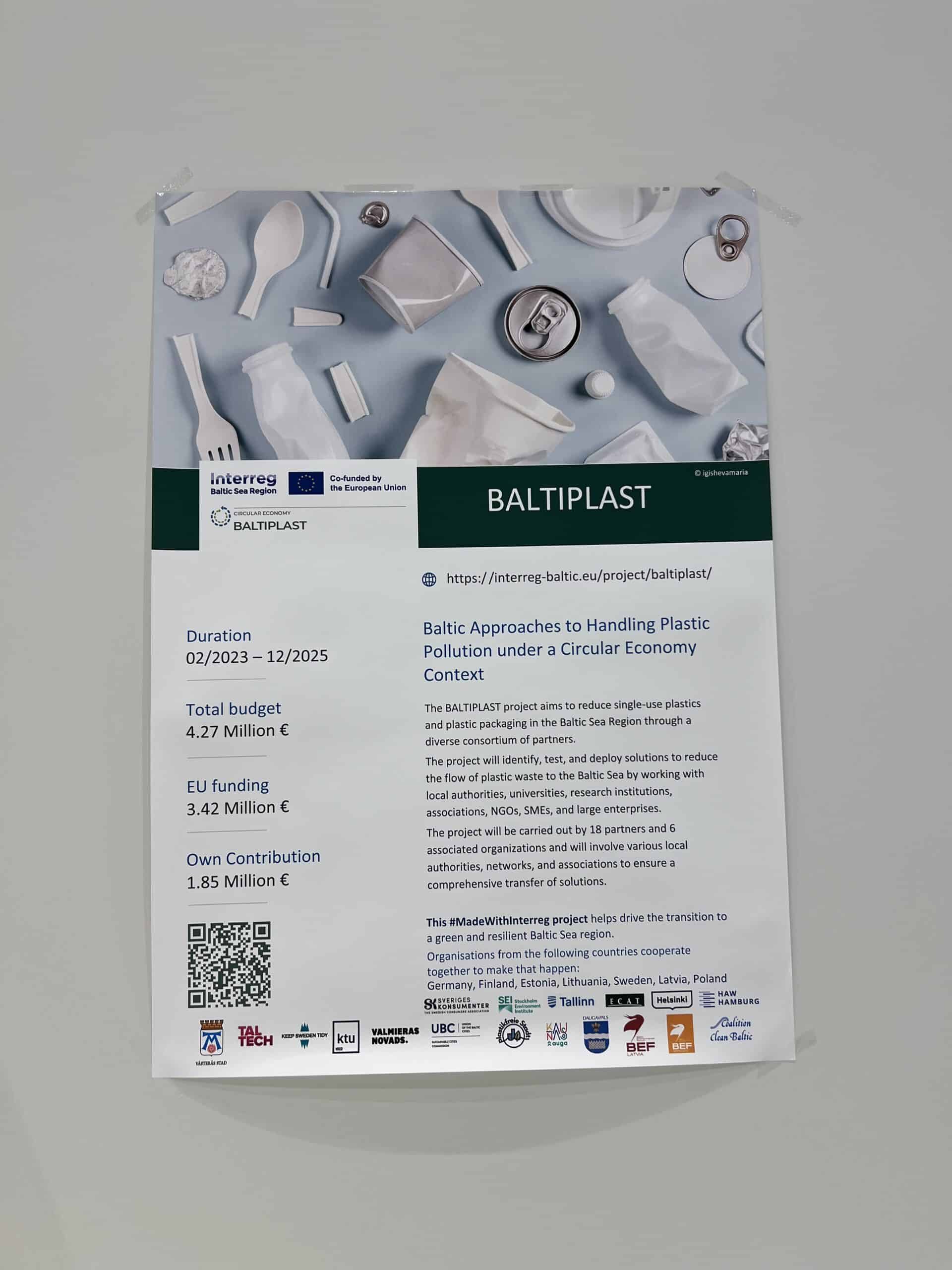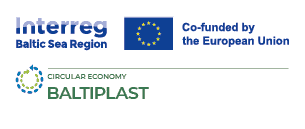
A Key Event for Sustainable Change in the Baltics
20 May 2025
The event is part of the BALTIPLAST project, which focuses on finding practical, local solutions to plastic pollution. The goal? To share ideas, showcase research, and inspire real change in how we produce, use, and recycle plastics.
What Happened at the Symposium?
The day was split into three main sessions, each focusing on different aspects of the plastic circularity challenge:
Session 1: Setting the Stage
This session introduced the key themes and goals of the symposium.
Prof. W. Leal from Hamburg University of Applied Sciences and Prof. Dr. Ž. Stasiškienė from Kaunas University of Technology opened with strong messages about why we must act now to shift toward a circular plastic economy—one that’s not only better for the planet but also offers new economic opportunities.
A. Dobri, BALTIPLAST’s communication manager, followed with an overview of the project, its goals, and its impact so far—focusing on how collaboration between cities, institutions, and communities is at the heart of our efforts.
Session 2: From Pollution to Solution
This session focused on the real-life solutions developed by BALTIPLAST. Speakers shared tools and strategies used in pilot cities—like developing strategic frameworks for municipalities, actions to reduce plastic use in public institutions, as well as private households and insights into the post-consumer plastic waste management in different communities.
A key message: Change is possible, especially when local governments, schools, and households work together.
We wrapped up this session with an interactive feedback round, where participants shared their thoughts on the presented solutions and highlighted where more work is still needed to help them achieve a plastic-free future.
Session 3: Innovation in Action
In this final session, researchers presented new ideas and materials that could change how we deal with plastics in the future. Topics included how fungi can break down plastic, new bioplastic materials made from natural fibers, and innovations in reusable systems and air-filtering materials made from biopolymers.
These exciting developments show just how much potential science and technology hold for helping us move away from conventional plastic.
Wrapping Up
The day concluded with a lively poster session and networking event, where participants had the chance to dive deeper into the topics, meet fellow changemakers, and exchange ideas. The evening ended with a cultural visit to the Kaunas Planetarium and a shared dinner—closing a day of knowledge, collaboration, and inspiration.
Looking Ahead
Plastic pollution is one of the biggest environmental challenges of our time. Events like this show the power of working together across borders—bringing research, strategic planning, and community action into one room.
We’re incredibly grateful to our hosts at Kaunas University of Technology, and to our organizing partners: Hamburg University of Applied Sciences, ECAT Lithuania, Kaunas Municipality, and the Baltic University Programme. Their support made this inspiring event possible.
Let’s keep working together to rethink the way we use plastic—because change starts with action.






